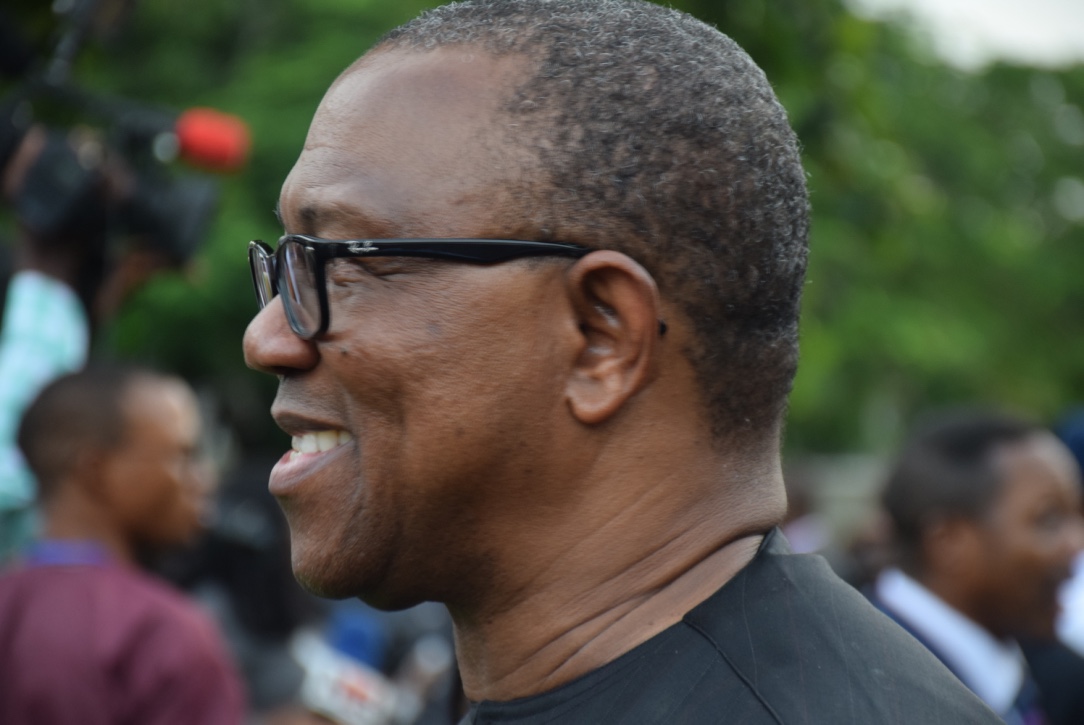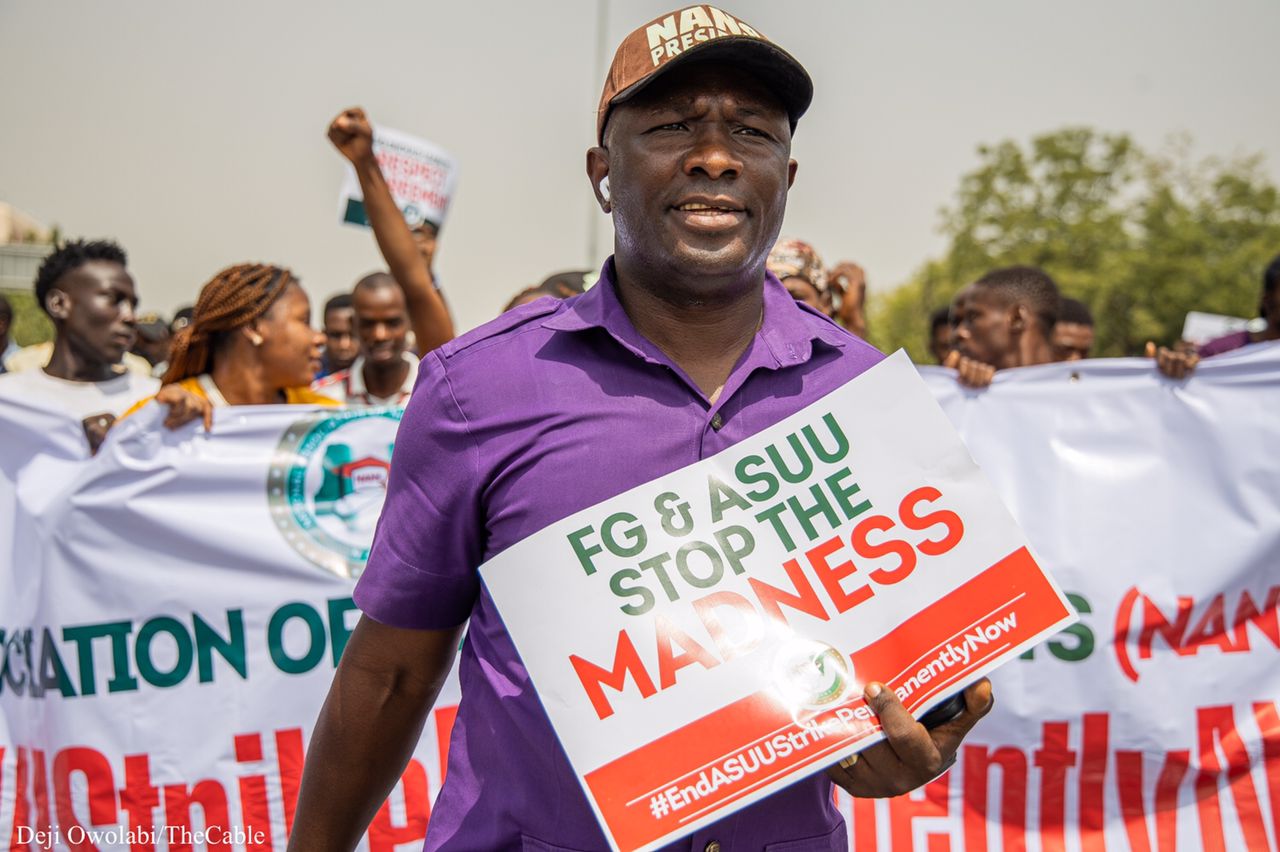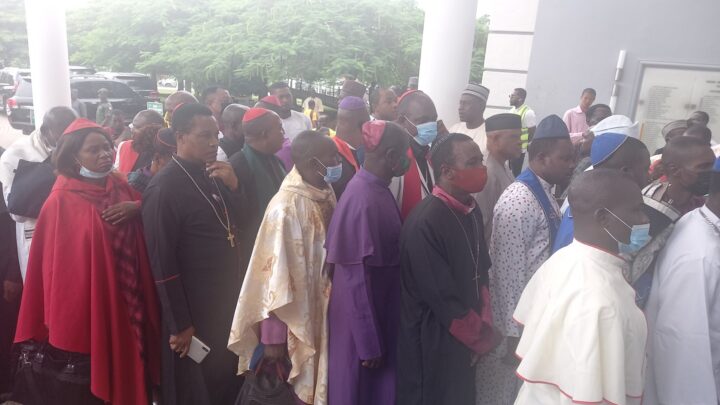Let me start by stating that I consider it an honour to have been invited to review this little book by Professor Ladipo Adamolekun.
Nigeria and I: Getting Politics Right to Make Nigeria Work is being presented as the highlight of the 80th birthday of the author. As one of the most respected scholars of international repute that Nigeria has produced in the last six decades, the author deserves to be celebrated on attaining four score years on earth. But Professor Adamolekun is much more than just an exceptional scholar. He is many other things. He is a social thinker, excellent administrator, outstanding linguist, first rate public management specialist, patriot and above all, a marvelous human being – or to combine the three languages in which he is proficient: C’est un vrai gentleman; an omoluabi!
At 80, this new book is proof that the author did not retire to Iju, his beloved hometown, to rest. He retired there to reflect. The main title of the book is a reflection of not just his intellectual exertions in the last almost six decades; it is also his deep deliberations on the challenges that Nigeria faces. This would not constitute a surprise to anyone who is familiar with the author’s life or has followed his intellectual trajectory and public career. Evident in his personal, public, professional and scholarly trajectories is a profound interest in, and unease about, the failure of his motherland to match its enormous potentials with its realities. As reflected in his autobiography, I Remember (2016), as one who is fortunate enough to have been born in an era where the circumstances of one’s birth did not limit one’s potentials in attaining the greatest heights in life, the author shows in this book that he is untiring in his concern with creating or perhaps re-creating a polity in which every citizen will have the opportunities to fulfil their potentials. That is, a society in which what Obafemi Awolowo described as “to each according to his[or her] ability” will be more of a reality than a mantra.
Therefore, when in his review of fifty years of the federal experience in Nigeria in a 2005 Publius article, Professor Adamolekun noted that “the salient features of Nigerian federalism” during its “golden age,” that is, between 1954 and 1965, were “choice, incentive, and competition,” he was not merely describing the organizing logic of the structural conditions of the Nigerian union in that era, he was also pointing to the overall conditions of socio-economic life that ensured that Nigeria not only produced the likes of him but also gave them the opportunities to exercise their meritorious lives according to their talents. The Adamolekun generation was a generation in which the overall social conditions were such that people could make excellent personal choices. They also had all the incentives needed to excel anywhere in the world. And importantly, competition was encouraged not only structurally among the regions, but also among the citizens themselves in order to ensure that the best were in charge of the critical instruments of the social order – including the universities and public service, two of the key areas of our national life that the author has studied closely for almost six decades.
Advertisement
There is a reason why the issue of meritocracy is at the centre of this book. I have called the title of my review, “The Problem with Meritocracy,” because, while the author’s life and the era that produced him have shown the value of meritocracy, the author’s advocacy in this book, that is, about “getting politics right to make Nigeria work,” was produced by what those who have been running Nigeria for a few decades now see as “the problem with meritocracy.” In fact, for them, meritocracy is a not merely a “problem,” it is a “threat” to their interests. And this, for me, is why this compact book is highly valuable not just because of the solutions it advances, but also in terms of its succinct but searing diagnosis of the Nigerian crisis.
In 2005, the author argued that Nigerian federalism was at a “crossroads.” Almost two decades later, as reflected in the urgent issues raised in the new book, Nigerian federalism is at a turning point. In the context of the current administration which has not only fought a frontal battle against core federalist ethos but has regarded meritocracy as if it were a tool of political and administrative regress, Nigeria and I: Getting Politics Right to Make Nigeria Work reminds us not only of the path not taken, but also of the unavoidable necessity of the recommended paths, if we are all interested in national salvation.
Against this backdrop, we can approach this trenchant appeal for national salvation that is Nigeria and I in three ways: the first is about the structural conditions and challenges that can make Nigeria work; the second is about the administrative imperatives that will make the country work; and the third is about the kind of critical agency that is unavoidable in a project of national progress.
Advertisement
As to the first, the author’ focus is on three key areas – the most important of which is federalism. As a respected expert on federalism, the author’s advocacy of a devolved federation is not only based of several decades of research and writing on the theme, but also his lived experience regarding how the subversion of federalist principles has turned Nigeria from a giant of Africa into what a respected political scientist, Professor Eghosa Osaghae, has described as a “crippled giant.” In his introduction to a special issue of Publius: The Journal of Federalism on “Federalism in Nigeria: Toward Federal Democracy” in 1991, Professor Adamolekun asked: “Will this trend towards over-centralization not exacerbate the competition for the control of political power at the center – with the financial and patronage resources that flow from it – thereby compromising the nurturing of democratic politics that would appear to be more compatible with a decentralized political arrangement?” Part of what animates this book is the attempt to respond to this question with the benefit of what he has observed since he asked that question more than two decades ago. In fact, the author argues correctly that operating federalism in the way it was originally designed by the country’s founding fathers would resolve many of the challenges facing the nation. In the context of the proliferating separatist groups, he adds that “there is a real sense in which the reconfiguring of the country’s federating units advocated here could remove the major raison d’etre of these separatist groups” (p. 28). The two other issues related to Nigeria’s structural challenges that the author addresses in the book are democracy and institutions in general. In section two of the book, the author attends to the questions of core democratic principles, democratic accountability, political participation, party system, rule of law and human freedoms. In Chapter 3, the author makes a case for building “strong institutions.” All these, that is, federalism, democracy, and strong institutions, are connected to the central theme of meritocracy which represents the core condition for mobilising these structural and institutional conditions for the creation of “life more abundant” for all.
The second way to approach this book is as a brief but forceful advocacy for the necessary administrative conditions for making Nigeria work. As an expert in public administration and an international public servant, the author focusses on the need for administrative competence and on educational excellence. As to the latter, he uses his life and education as examples of Nigeria’ past educational glory. “However,” the author notes, “by the 1980s, a de-emphasis of educational excellence has taken root in the country and it was one of the “push” factors that led me to embrace a second career in the World Bank” (p. 6). Against this backdrop, he identifies the causes of the crisis in the education sector and offers remedies. Regarding administrative competence, the author foregrounds the value of a “bureaucracy with the requisite skills, knowledge and capacity to bear primary responsibility for service delivery to their citizens” (p. 43). Such a bureaucracy as a figure of “administrative competence,” he argues, is the “instrument that helps governments to deliver services to their citizens.”
The third way to approach the book is to focus on human agency. This is where the author fuses the structural and administrative concerns that underpin the book with the critical role of human agency and also links the two parts of the book; that is, the first part about “fond memories of Nigeria” and the second part about “getting politics right to make Nigeria work.” Additionally, this the point where “Nigeria” (the structure) is joined with the “I” (the human agent) in the title of the book. More importantly, this is where we also see the promise of and the problem with meritocracy in the past, present and future of the country. While the author emphasizes that “it is clear that getting politics right is the sine qua non for making Nigeria work” (p. 25), and argues that the critical ingredients of doing so are “a devolved federation, good democratic practice, and administrative competence” (p. 26), he also shows that without the right kind of people in the critical areas of Nigeria’s public life, neither the institutions for public governance nor the administrative machinery for public service will work well. This points to the fact that the reverse is also true: without federalist practices, strong institutions, and an excellent bureaucracy, even the best-intentioned individuals cannot make Nigeria work.
As evident in the failed salvationist or messianic experiments in Nigeria’s history – both martial and civilian – you cannot build an equitable and just polity on the shifting grounds of weak institutions, inefficient and ineffective bureaucracy and incompetent political leadership.
Advertisement
Professor Adamolekun, again in this book, invites his compatriots to reconsider the path that led the country to where it is now, and not merely retrace the national steps, but to rethink the overall processes that can make Nigeria work. This short but persuasive book is therefore not only a testament to several decades of excellent intellectual exertions; it is also a verification of the author’s life of care, concern and commitment.
Being a Review of Ladipo Adamolekun, Nigerian and I: Getting Politics Right to Make Nigeria Work, 2022.
Prof Adebanwi teaches at the University of Pennsylvania, Philadelphia, USA.
Advertisement
Views expressed by contributors are strictly personal and not of TheCable.
Add a comment







